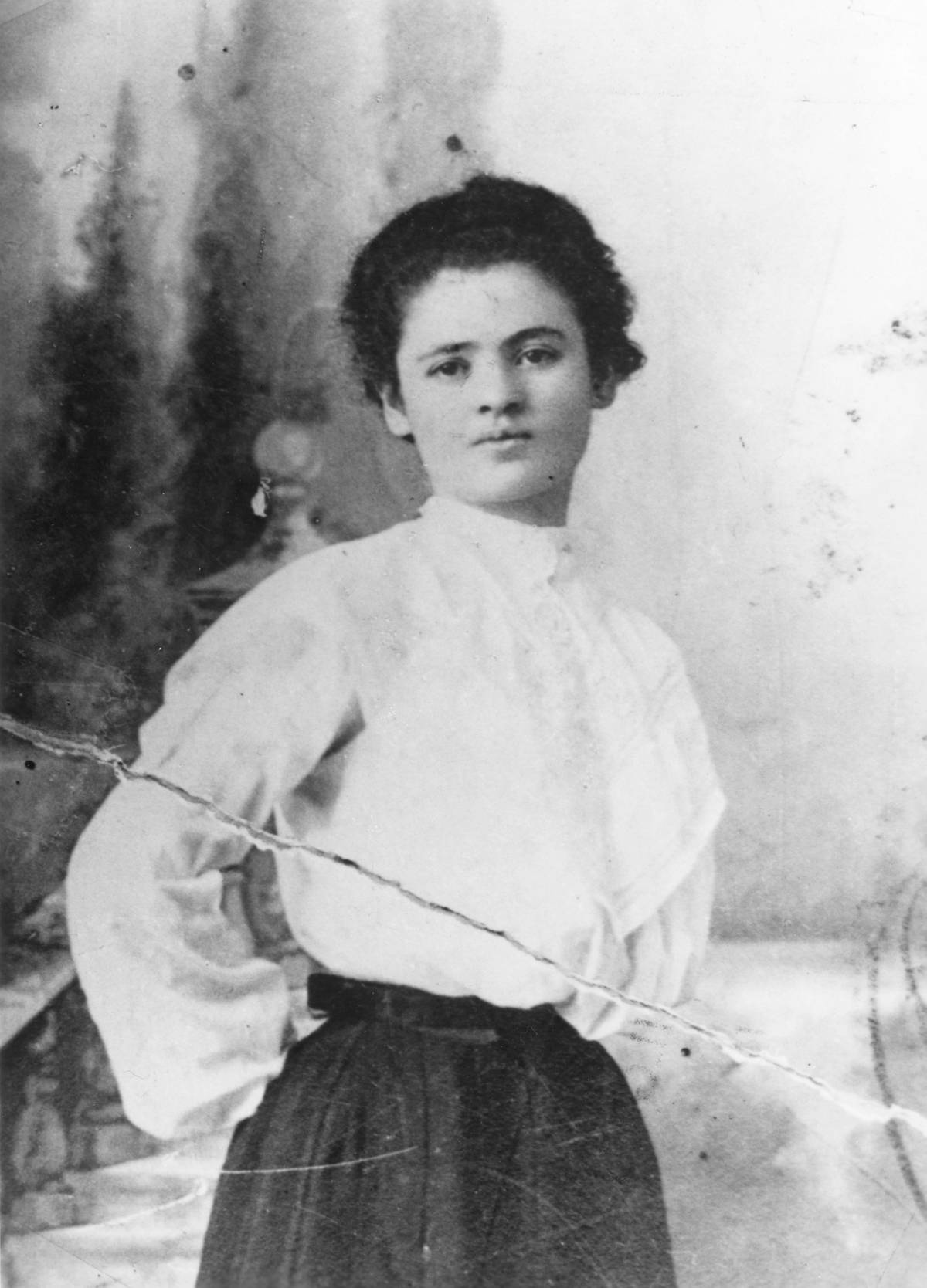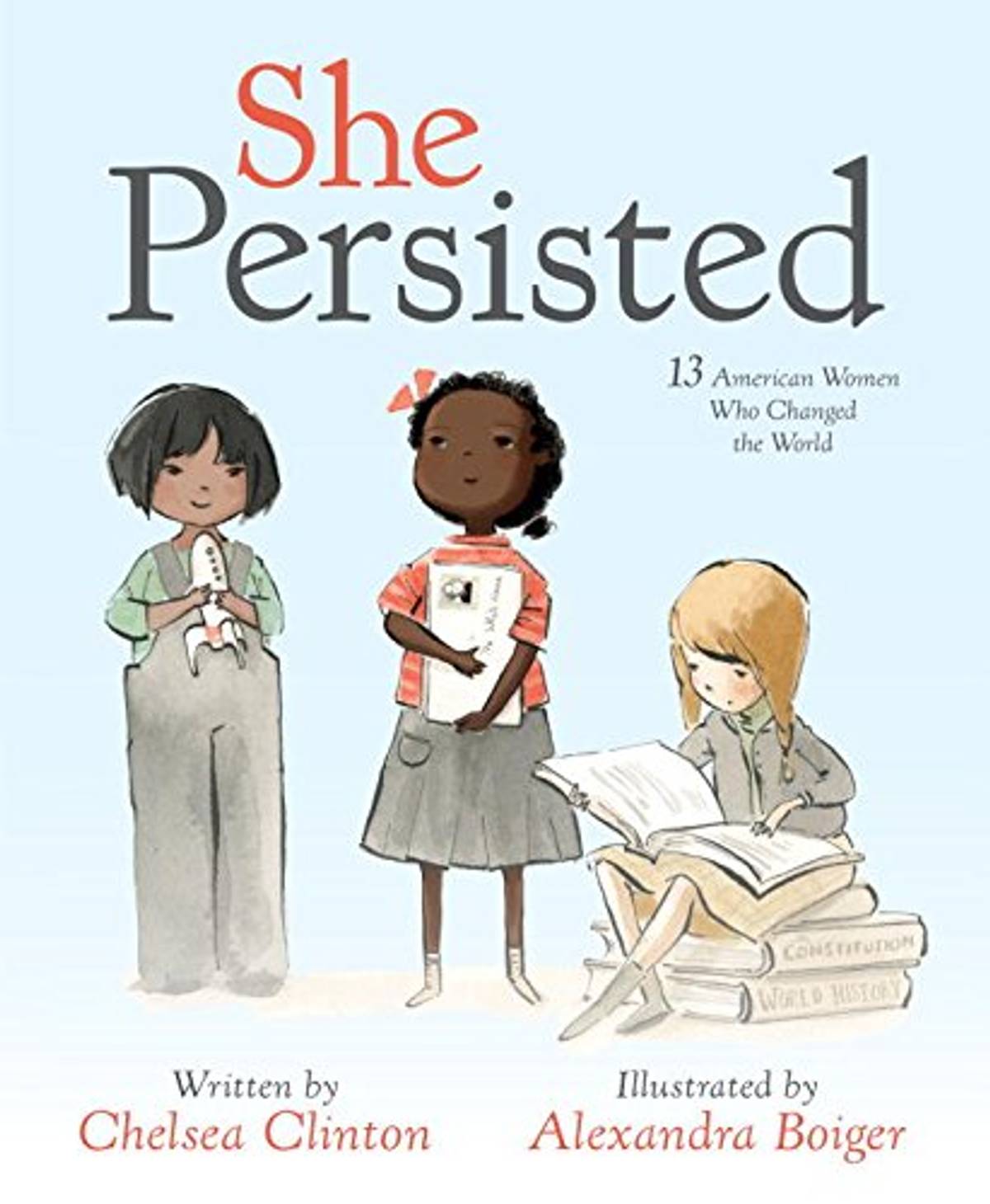Clara Lemlich’s Legacy Continues To Be an Inspiration for Change
In She Persisted, a new picture book by Chelsea Clinton about remarkable women in history, Lemlich is the lone Jewish representative




If you are skeptical of celebrity-authored children’s books, most of which reflect little talent but lots of self-promotion, here is one to change your mind. Last month Philomel Books (of Penguin Random House) released Chelsea Clinton and Alexandra Boiger’s She Persisted: 13 American Women Who Changed the World. To set the stage of American women’s history for young readers, the book launches by way of Senator Mitch McConnell’s obtuse response to Elizabeth Warren’s February criticism of Jeff Session—a “lengthy speech,” said McConnell. After stopping her speech by rule, McConnell later said, “She was warned. She was given an explanation. Nevertheless, she persisted.”

Clinton chooses 13 phenomenally persistent females, producing an accessible focus on courage and accomplishment. Some of her examples are well-known and others are often overlooked. They include activists Ruby Bridges and Claudette Colvin, physician Virginia Apgar, and astronaut Sally Ride. Each brief biography is accompanied by an inspiring quote. The pictures are both dramatic and matter-of-fact in their portrayal of the obstacles these women overcame. (Boiger is a prolific illustrator who has already depicted assertive girls and women, both actual, in When Jackie Saved Grand Central, and fictional, in Take Your Mama to Work Today, both by Natasha Wing.) Harriet Tubman raises her lamp, a real-life avatar of the Statue of Liberty, to guide men, women, and children to safety. Florence Griffith Joyner crosses the finish line holding high the American flag, its red stripes matching the earth of the Mojave Desert where a child-version of Joyner herself runs with determination. Journalist Nellie Bly stands quietly at a podium looking down at pen and paper, describing the inset image of cruelly mistreated patients in a mental hospital.
One woman in this collection is Jewish. She is Clara Lemlich, labor leader and heroine of the 1909 strike by primarily Jewish women workers in New York City’s garment district. Lemlich and her colleagues of the International Ladies’ Garment Workers’ Union and the National Women’s Trade Union League of America rebelled against the shameful conditions confronting both women and men fighting for the right to a living wage and a safe workplace. Clinton identifies Lemlich and her family only as refugees who “fled poverty and the threat of violence in Ukraine,” leaving a less-informed unaware of the deep Jewish roots of labor activism in the United States. In Boiger’s stunning image, a mass of women workers, clothed in grey and taupe, are huddled over their sewing machines while Lemlich, in a bright red suit and hat, waves her fist in the air. In the left margin of the two-page spread a young Lemlich, also dressed in a politically charged red, stands on the prow of an immigrant ship looking toward New York Harbor.

Some of the women in She Persisted are explicitly identified as members of an ethnic group when the illustrations alone might not make this identity clear. Sonia Sotomayor is the “first-ever Latina to sit on America’s highest court.” Maria Tallchief “was teased by students in school for her Native American heritage.” Clinton must have considered these pieces of information essential to her message of encouragement and diversity. Children reading this testament to the strength of women also need to know that Lemlich and her family were fleeing, not generic poverty and violence, but the ever-present reality of brutal anti-Semitic attacks in Europe. They also need to be informed about the foundational and, yes, persistent, role of Jews in America’s movement for unionization.
And Clinton would no doubt support my recommendation to share another work that chronicle Lemlich’s accomplishments: Michelle Markel and Melissa Sweet’s Brave Girl: Clara and the Shirtwaist Makers’ Strike of 1909 offers much greater detail about Lemlich’s heroism, while specifying her use of Yiddish to communicate with oppressed workers, including a historical afterward and bibliography. If Mitch McConnell was disgusted by Elizabeth Warren’s dismissal of his demand, what might he have said had he heard Clara Lemlich? Likely, “I have no further patience for talk—I move that we go on a general strike!” (Or, as in Sweet’s illustration, “Unzer ayntsiger oysveg iz a zshneral strayk!”) In She Persisted, Clinton and Boiger make it clear that cautioning women to mute their voices will not work.
Previous: The ‘Fiery’ Historic Heroines of New York’s Lower East Side
Related: Seven Jewish Heroines Disney Should Make a Movie About
Emily Schneider is a writer and educator in New York City who blogs about children’s literature at imaginaryelevators.blog.